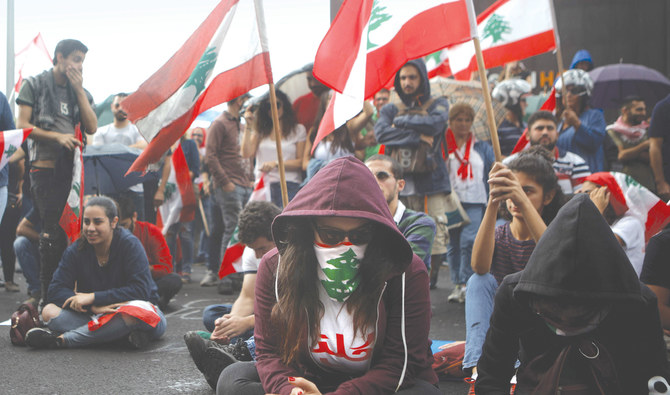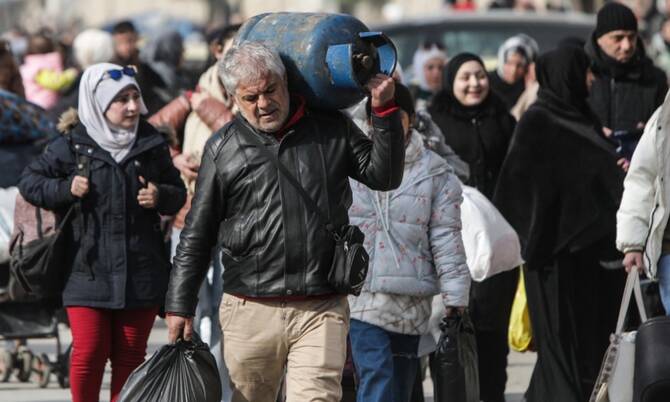BEIRUT: Lebanon’s sprawling northern port of Tripoli was once a government bastion, a springboard for the country’s political leadership going back decades. But in a major turnaround, the city and many of its 730,000 people have turned their backs on an increasingly isolated regime in protest at economic neglect and alleged corruption.
Large crowds protesting in the central Abdul Hamid Karami Square for the past week have surprised observers and shocked supporters of Lebanon’s Prime Minister Saad Hariri and his Future Movement alliance.
Former Lebanese Minister and current MP Faisal Karami told Arab News that Tripoli is in a state of revolt “over poverty, marginalization, underdevelopment, deprivation and false promises.”
The city is key to the Future Movement’s political fortunes and has long been a base for Lebanon’s leaders, including Rafiq Hariri, father of the current prime minister.
Its transformation from loyalist stronghold to vocal opponent of the regime is a major turning point.
“The protests in Tripoli are driven by the youth, who first took to the streets to vent their fury over the WhatsApp tax, but they include people of all ages, social classes and religious sects,” Karami said.
Asked if the city has abandoned its traditional leaders, he replied: “Today, no one can speak about the choices of the people of Tripoli. Only the results of the early elections will reveal that.”
Karami described the protests as “a spontaneous social explosion, the result of an accumulation of economic policies.”
FASTFACT
Tripoli is key to the Future Movement’s political fortunes and has long been a base for Lebanon’s leaders, including Rafiq Hariri, father of the current prime minister.
The country’s leadership, “with its private jets and yachts, and multimillion-dollar wedding parties, has become a provocation to the people,” he said.
Khaldoun Al-Sherif, an adviser to former Prime Minister Najib Mikati, told Arab News that protesters on the streets of Tripoli “are the same ones who did not vote during the 2018 parliamentary elections, and they represented 50 percent of the voters.”
“The difference between Tripoli and other regions is that all politicians in the city support the civil movement,” he said.
Khedr Taleb, editor-in-chief of Tripoli’s Al-Raqib magazine, said: “After the parliamentary elections, politicians shut their doors to the city’s people and not even a single party adopted their demands or fixed their problems.
“The city has suffered terrible economic stagnation. People in Tripoli are low-income earners. The youth unemployment rate has reached unacceptable levels. Even those who did not take to the streets support the movement, just like the protesting youth.” Maha Aziza Sultan, an art critic and professor at the Lebanese University, has remained at home, although she strongly supports the protests.
“My city surprised me a lot,” she said. “Tripoli has been neglected for more than 30 years to the point where some streets do not receive any state services, even though it has never failed to pay its taxes.”
She said: “Tripoli is a scientific and cultural city, but also home to the poor and illiterate. There are capitalists in the city and they are hated by the rest of the people.
“This week Tripoli has said that it wants the most basic human rights, and all people in the city have been making the same demands.”
















